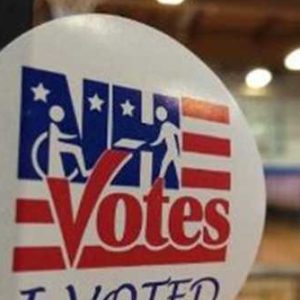A progressive group led by Hillary Clinton’s 2016 campaign attorney lost its bid to force New Hampshire to count mail-in ballots that came in a week after Election Day.
On Friday, Hillsborough County Superior Court Judge William Delker rejected nearly all of the claims in a lawsuit backed by the organization Democracy Docket.
The suit challenged the state’s refusal to prepay the postage on absentee ballots; the requirement that ballot drop boxes must be “staffed by a properly trained election official,” and that mail-in ballots must be received by 5 p.m. on Election Day.
“The burdens the plaintiffs complain of here are not the result of state action, but rather stem from health concerns due to the pandemic,” Judge Delker said in his ruling. “The State of New Hampshire has not created new impediments to voting.”
Secretary of State Bill Gardner’s office released a statement after the ruling came down.
“Today’s Superior Court order denied virtually all of the plaintiffs’ claims and upheld New Hampshire’s voting laws,” Gardner said. “The Court did order the Secretary of State to develop a process to accept requests for absentee voter registration forms. In fact, the Secretary of State’s Office already accepts requests for absentee voter registration forms and provides those forms to applicants when requested.”
It was the second setback of the day for the D.C.-based group founded by Democratic attorney Marc Elias. A federal appeals court on Friday overturned a lower-court ruling in favor of a Democracy Docket-backed lawsuit in Georgia. That ruling would have forced the state to count late ballots received by the Friday after the election.
Elias is best known for serving as the attorney for Clinton’s 2016 POTUS bid, during which time his law firm hired the opposition research firm Fusion GPS to gather the information that appeared in the now-discredited Steele dossier used to launch the debunked Russia collusion story in 2016.
In New Hampshire, Elias’ group was suing to require the Granite State to count ballots that didn’t come in until five business days after the voting ended. Under this plan, ballots not received by the town or city until the Tuesday after the election — a week later — would have to be included in the final tally.
“Voters have ample time to request, complete, and return their registrations and/or ballots prior to the election,” Judge Delker rules, quoting a 1973 ruling: “If their plight can be characterized as disenfranchisement at all, it was not caused by [the challenged state law], but by their own failure to take timely steps to effect their enrollment.”
“New Hampshire doesn’t have two Election Days, we have one,” Secretary of State Bill Gardner told NHJournal the day of the hearing. “You can’t show up at the polls on the next day and vote. We have deadlines. They’re in our state’s constitution.”
The Republican National Committee and NHGOP sided with New Hampshire in this case. GOP Chairwoman Ronna McDaniel celebrated the outcome on Twitter.
“More wins for the RNC in our fight to uphold voter integrity! Today, a New Hampshire court rejected all of Marc Elias’ substantive claims in Democrat lawsuit challenging ballot receipt deadline and the state’s ban on ballot harvesting.”

